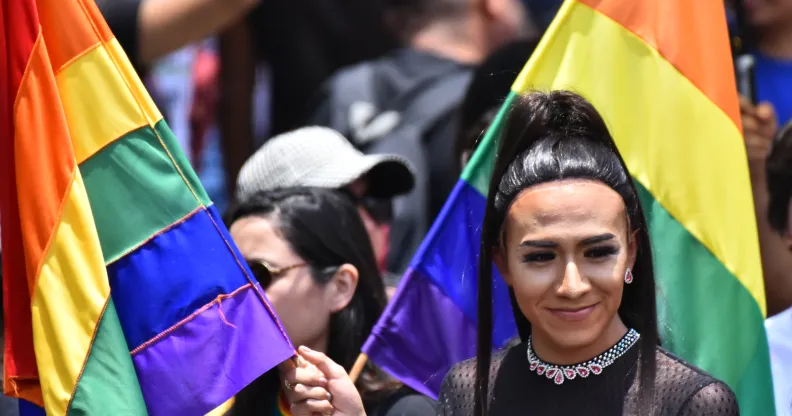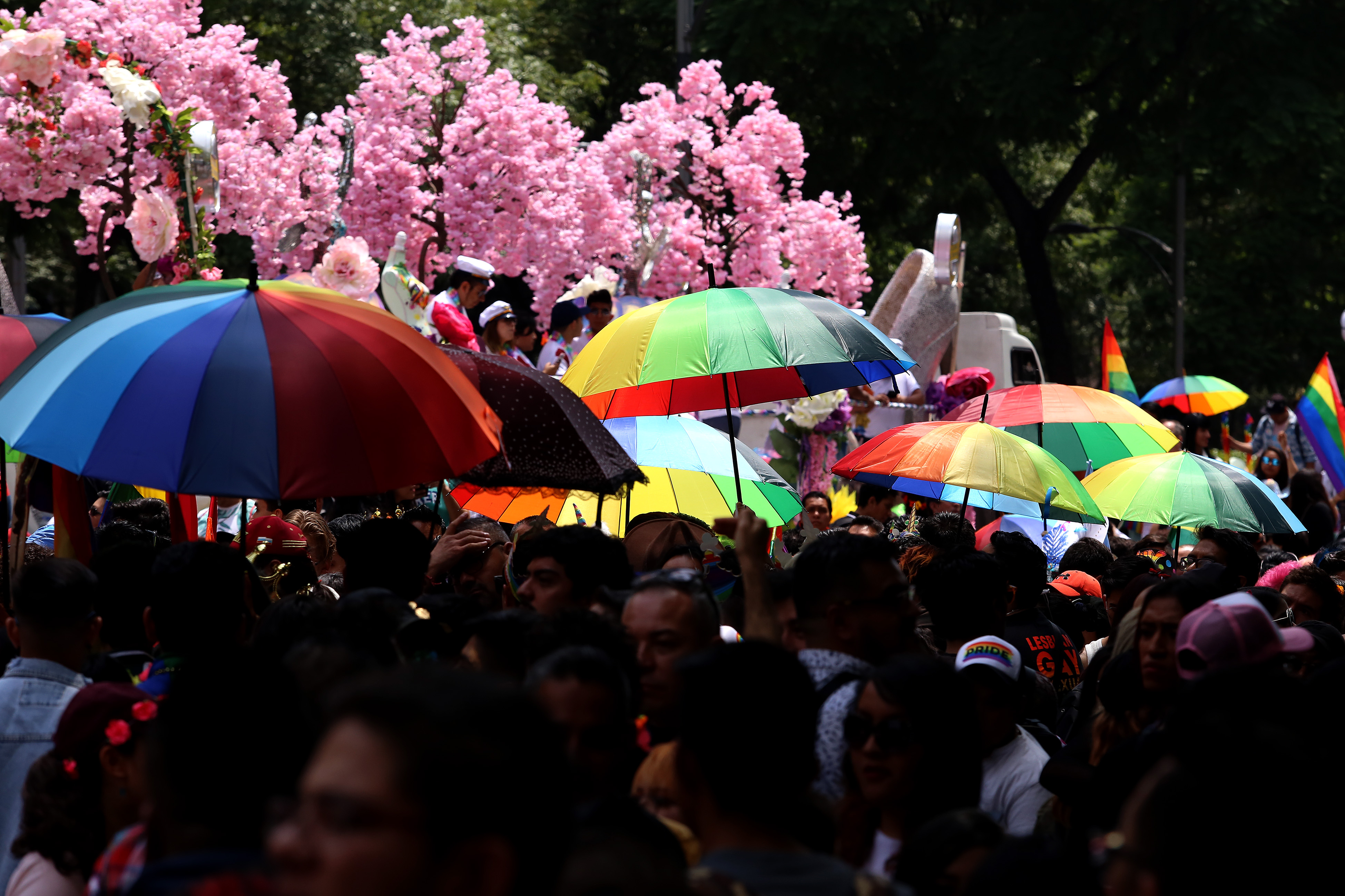Mexico is now the world’s second-deadliest country for trans people

Mexico City Pride parade 2019. (Carlos Tischler/NurPhoto via Getty Images)
Mexico is now the world’s second most deadly country for transgender people after Brazil, but most murders go unsolved and unpunished.
A new study by Mexican LGBT+ rights organisation Letra Ese has shown that, between 2013 and 2016, at least 473 LGBT+ people have been killed in the country, and 261 of these were trans women.
According to the report, the last two years have been the most violent, with a 30 percent increase in the number of murders in relation to the average of previous years.
However, the study says that numbers are likely even higher due to a lack of data collection on crimes against LGBT+ people and that “due to fear of their sexual orientation being revealed, fear of suffering more violence or distrust of law enforcement, many LGBT + people prefer not to report when they have been victims of acts of discrimination and violence”.
Six out of 10 LGBT+ participants in the study said they had suffered discrimination during the last year, and more than half suffered hate, physical aggression and harassment.
According to the Associated Press, fewer than three percent of the killings of LGBT+ people have resulted in convictions since 2013.

Mexico City Pride parade, 2019. (Adrián Monroy/Medios y Media/Getty)
Murderers go unpunished because law enforcement share their prejudice, the report says.
Letra Ese said in its report that police, prosecutors and judges often share the same prejudices that caused the hate crime in the first place, and that all LGBT+ people are defined by law enforcement as “homosexuals”.
It continued: “In ministerial investigations, prejudice is activated from the precise moment when a homicide victim is perceived as ‘homosexual'”.
It also said that perpetrators of hate crimes are often allowed to defend themselves using a gay or trans “panic” defence, in which the defendant claims the crime was a result of discovering the victim’s sexuality or gender identity.
Mexico is socially conservative and has a conflicting record on LGBT+ rights.
Equal marriage was legalised in 2009 in the semi-autonomous Mexico City, which is seen as being more progressive than the rest of the country, and in 2015 it was ruled that a ban on same-sex marriage was unconstitutional for the whole country.
However, less than half of the country’s 32 states allow same sex couples to wed, Reuters reported in April.

